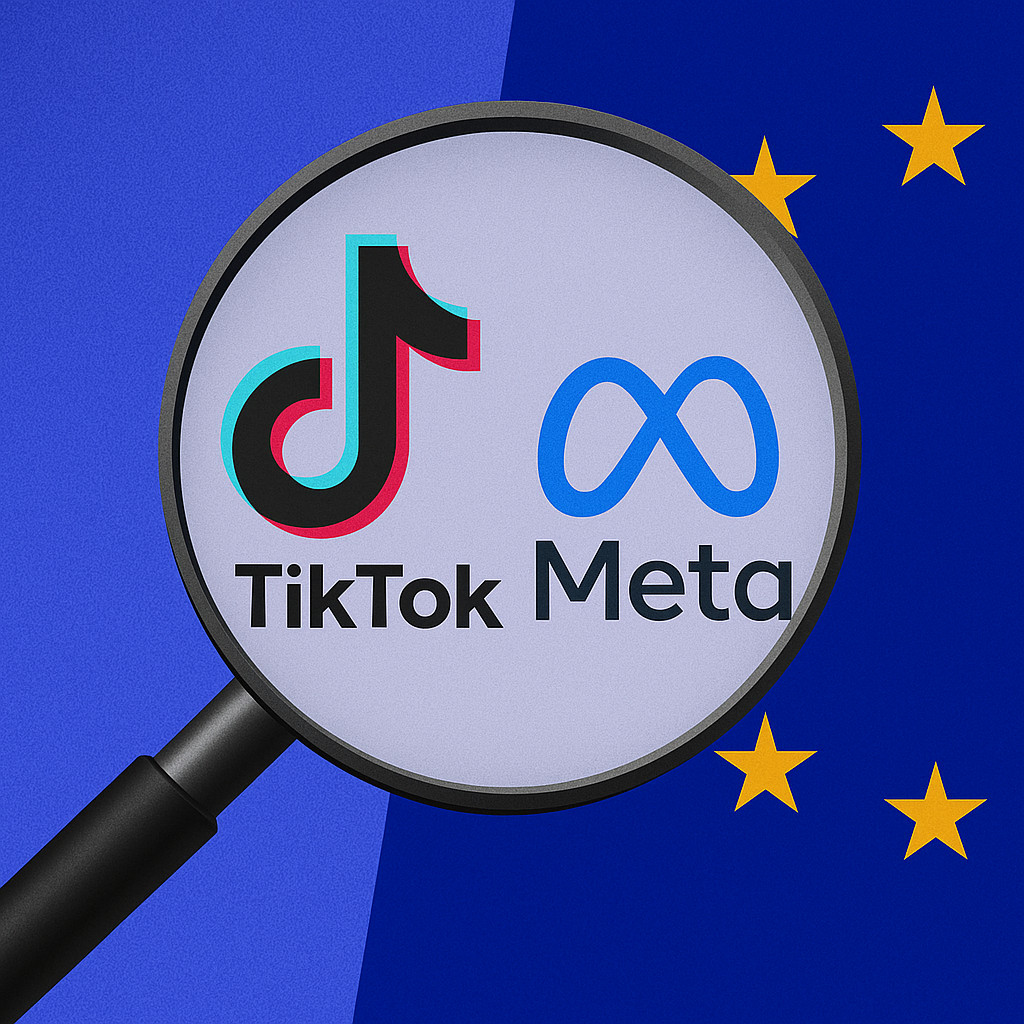Already a subscriber? Make sure to log into your account before viewing this content. You can access your account by hitting the “login” button on the top right corner. Still unable to see the content after signing in? Make sure your card on file is up-to-date.
The European Commission has accused both TikTok and Meta of violating the Digital Services Act (DSA).
Some shit you should know before you dig in: If you’re unaware, the Digital Services Act (DSA) is a European Union law aimed at making online platforms safer, more transparent, and accountable for how they handle content and user data.It requires large platforms like TikTok, Facebook, and Instagram to quickly remove “illegal” content, provide easy-to-use tools for users to report such content, allow users to appeal moderation decisions, and grant researchers access to platform data to study societal risks like “misinformation” or harm to minors. Non-compliance can result in fines of up to 6% of a company’s global annual revenue, making it one of the most powerful regulatory tools in the EU’s arsenal. However, the DSA has drawn criticism from some US tech companies and politicians who argue that it’s being used to disproportionately target American firms, accusing the EU of regulatory overreach and economic extortion through massive fines and compliance demands.

What’s going on now: In an announcement, EU officials said both Meta (which owns Facebook and Instagram) and TikTok may have violated core transparency and user rights obligations under the DSA. The Commission’s preliminary findings accuse both companies of failing to provide researchers with adequate access to public platform data, a legal requirement meant to enable independent scrutiny of harms like misinformation, the spread of illegal content, and the impact of platforms on children’s mental health. According to the Commission, Facebook, Instagram, and TikTok have “put in place burdensome procedures and tools” that often leave researchers with “partial or unreliable data,” undermining their ability to carry out meaningful studies. The EU emphasized that “allowing researchers access to platforms’ data is an essential transparency obligation under the DSA.”
In TikTok’s case, the Commission raised additional concerns about how the platform limits access to public data, even as it claims to support research. The EU suggested that TikTok’s procedures may intentionally hinder external analysis of content exposure, particularly for vulnerable groups like minors. TikTok has responded by pointing to its Research API and claiming that it has already given nearly 1,000 research teams access to its data. However, the company also argued that some of the DSA’s transparency obligations clash with the EU’s own GDPR privacy laws, saying, “If it is not possible to fully comply with both, we urge regulators to provide clarity on how these obligations should be reconciled.”
Meta, meanwhile, faces an even broader range of accusations. In addition to inadequate researcher access, the Commission said Meta has failed to provide simple, user-friendly tools for flagging illegal content like child sexual abuse or terrorist material, as required under the DSA’s “Notice and Action” rules. Instead, Meta allegedly imposes unnecessary steps and confusing interfaces (referred to as “dark patterns”) that may discourage users from reporting harmful content. The Commission also criticized Meta’s appeals process on Facebook and Instagram, saying it doesn’t allow users to submit supporting evidence or explain their side when challenging content removals or account suspensions. EU officials said this makes it “difficult for users in the EU to further explain why they disagree with Meta’s content decision, limiting the effectiveness of the appeals mechanism.”
Both companies deny wrongdoing. Meta spokesperson Ben Walters stated, “We disagree with any suggestion that we have breached the DSA, and we continue to negotiate with the European Commission on these matters.” He added that Meta has made multiple changes to its content reporting, appeals process, and data access tools since the DSA came into force and believes it is compliant with the law. TikTok also pushed back, saying it is “committed to transparency” and continues to support the research community, but reiterated its concerns about regulatory contradictions between the DSA and GDPR.
As of now, no fines have been issued. Both TikTok and Meta have the right to review the evidence and respond in writing before any final decisions are made.







